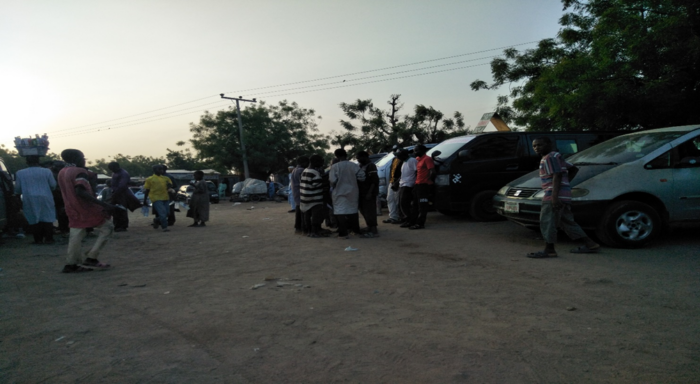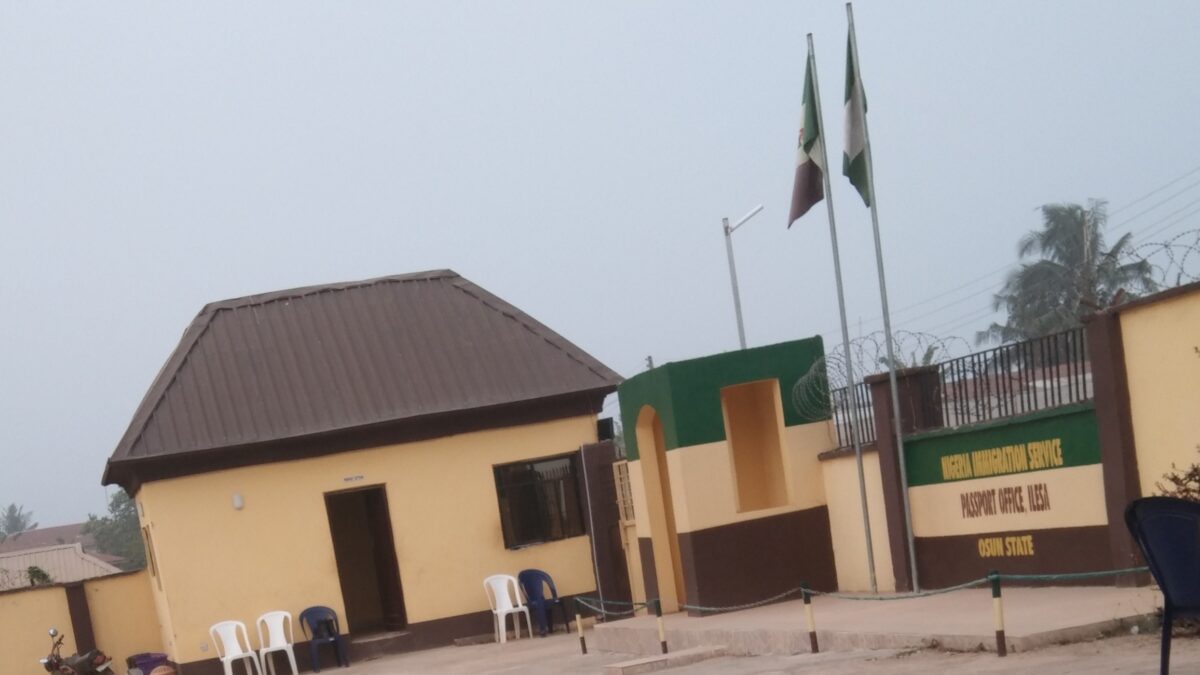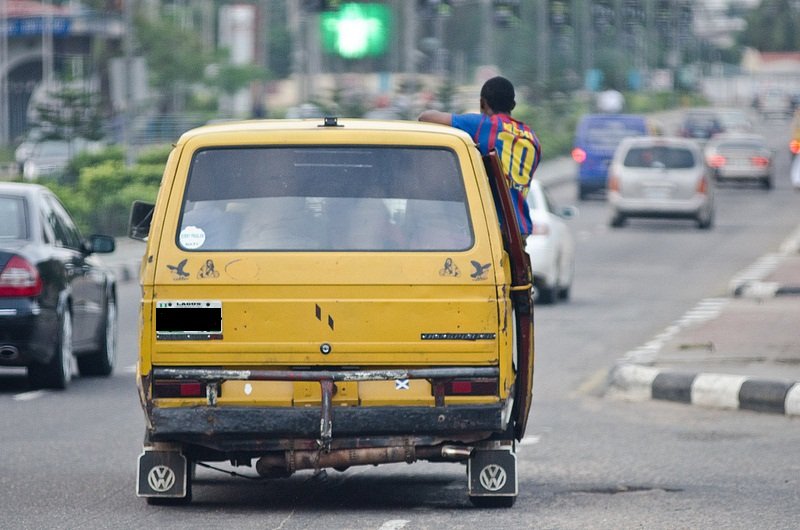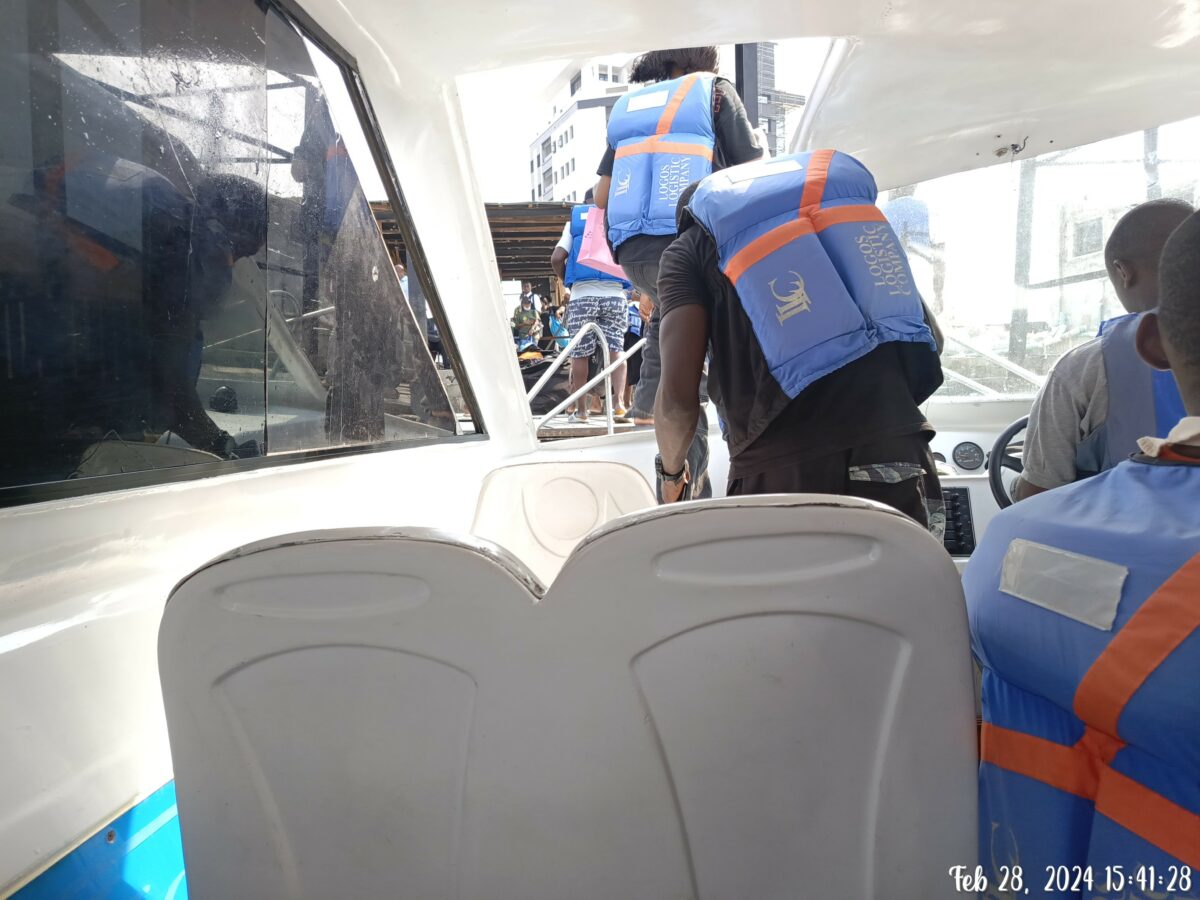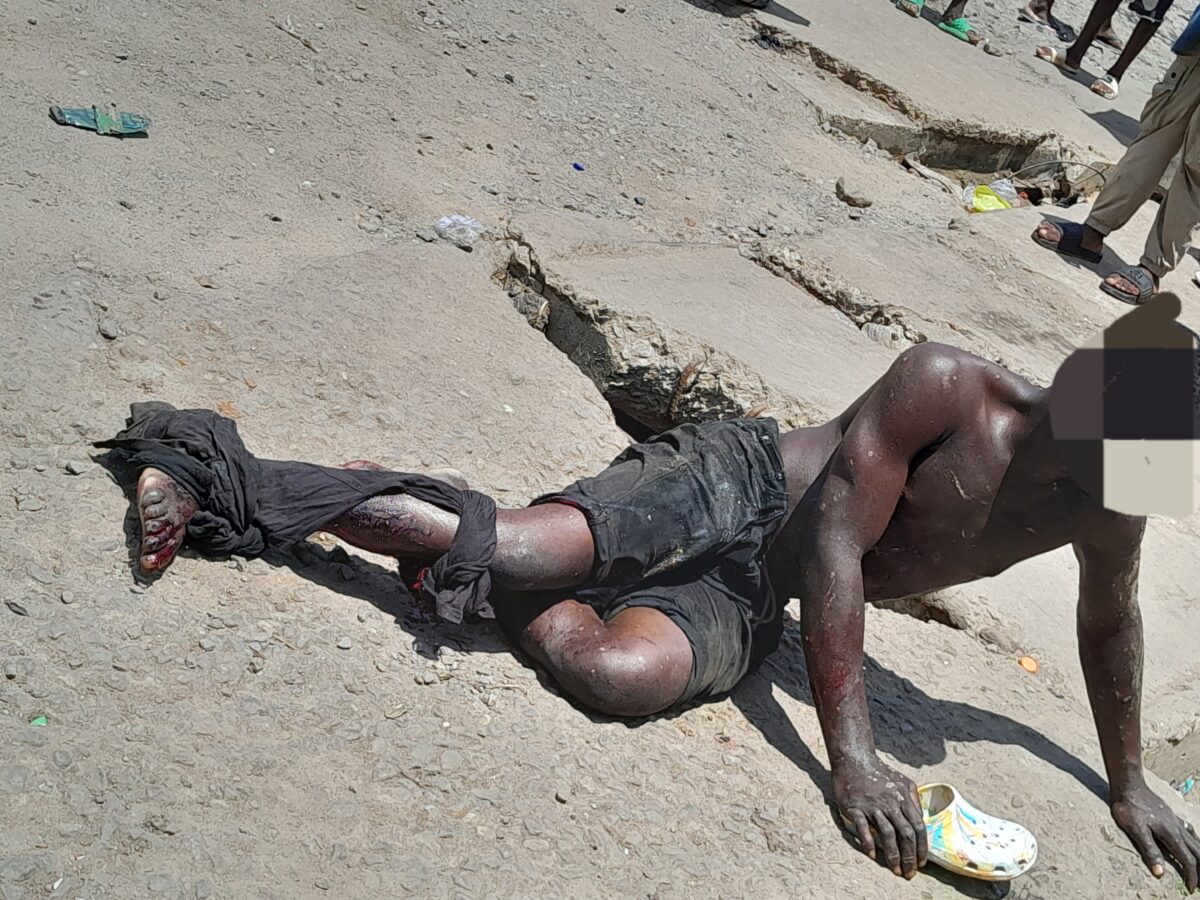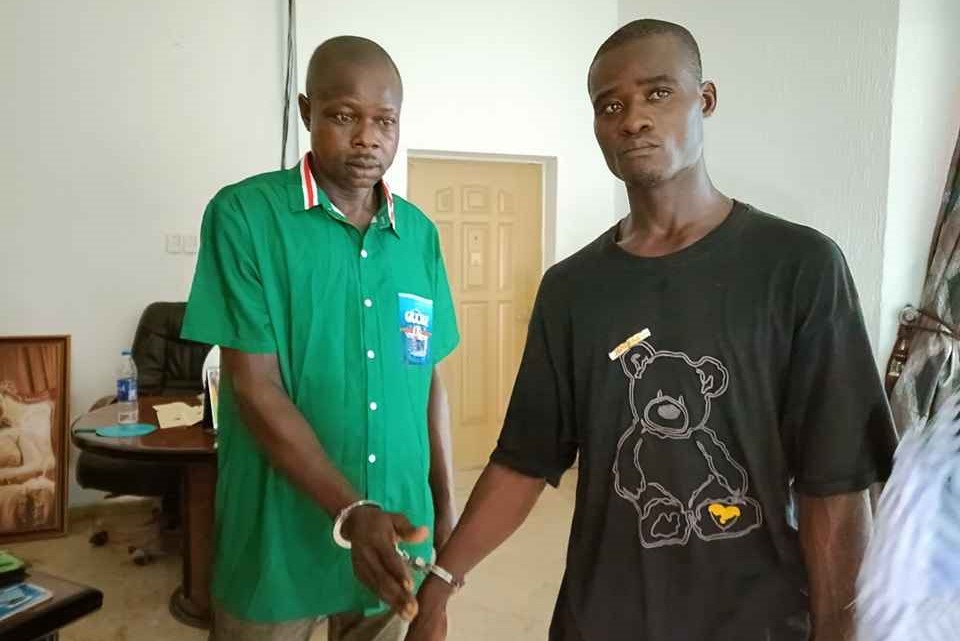The moment our bus revved its engine to start our journey to Delta State, my labor room pain eased. This state, Kano State, which I arrived in 48 hours earlier had made my eyes savor too many unpleasantries. The morning of my arrival in Kano State, after scouting for a reasonable place to shelter, my guide and I made our way to the bank to get some money. On our way, I saw a boy whose age could not be more than seven.
He lay on the bare and dirty floor in front a shop by the roadside. It was the weekend; therefore, shops were closed. As we approached, the road leading to the bank and my sight of the boy became clearer, and I saw the dirtiest young child I’d ever seen. This boy was brown from his hairs to the sole of his shoeless feet, painted with dust. Here was a child subject to the goal of survival.
The more steps we took, the more the sight of this boy became glaring and heart-wrenching. By now, I was no longer only intrigued by his dirty look. Upon first sighting the boy, my journalistic instinct took flight. I reached for my phone to capture this dishonorable image of a young helpless child, but my mind quickly wandered to the story of Kevin Carter, a South African photojournalist who reached global acclaim for capturing the picture of a starving little girl been looked upon by a vulture waiting to make her its next meal upon death. It was said of how the man died by taking his own life because he couldn’t live with the blessing and curse of the imagery he created. Not wanting a fate like his, I placed my phones back into my pocket. We had arrived at the exact spot where this boy lay. He was writhing in so much pain. Tears failed to drop from his eyes as he held his belly. This was a young child slowly dying from hunger.

When I arrived at Angwa-uku Motor Park at about 3:00 am on Sunday, May 21, from Abuja, the night’s darkness was too thick for me to make my way into town. I inquired from the driver who drove us to Kano from Abuja where I could spend the night. He directed me to a makeshift hotel/shelter located within the motor park. Speaking Hausa Language was not my forte, so I beckoned on the driver to follow me there in order to help make room reservations. “They usually charge N100”, Jinadu, the driver, told me as we made our way. I had barely arrived at the place when Jinadu hastily introduced me to the receptionist and turned back.
“It’s N150, oga”, the receptionist, who doubled as security guard, told me. Confused, I tried to haggle the price because of the information Jinadu had given me about the cost. All my efforts fell short, and I agreed to pay. The makeshift hotel was an aluminum shelter supported with wood here and there. The place of rest was a long rug spread on the floor for each man to carve out his spot. After ushering me into the place, the receptionist left me to figure out my spot, while he returned to his security post to keep watch. Tired and worn out from their various activities, men of different sizes were fast asleep. I carved out a spot close to the door of the entrance to the second compartment of this supposed hotel. I made my bag a pillow and closed my eyes to sleep.
Sleep? No. It did not take less than five minutes before my eyes opened. Getting sleep here was going to be a miracle. I huffed and puffed, twisted and turned; yet, sleep kept eluding me. This brute I bared till the day broke and I was welcomed by the hazy morning breeze of Kano. I settled on a bench positioned under a tree close to the hotel. There, I met the receptionist preparing to close for work. He put off the bonfire he had used throughout the night. I hurriedly placed my feet around it to catch some warmth. As I did this, some children began to walk out from only God knows where. One after the other, from different directions within the park, they emerged with their plates, both plastic and iron, their shoeless feet, unseemly look and hunger-filled faces. They were not brothers; it was life that brought them together. This was 6:30 am, and these children had resumed begging. From one bus to another in the park, they moved begging for their daily bread.

The culture of begging was not new to me, but this type was entirely different. In Lagos, the only people I experienced begging at such an early hour of the day were those who were stranded and in need of help to get to their workplace. This culture shock sparked my curiosity. I beckoned to Moses, whom I met under the tree while warming my feet, to please help call these children. Speaking Hausa Language, Moses called these children to come. While we waited for them to arrive, I told Moses to help me ask for their age, names and classes. “Class? That one no be education.” Moses’s English was not fluent; however, I could deduce what his words meant: these children were not concerned with education.
Isa, 10, and Usman, who couldn’t remember his age, appeared at our front. Through Moses, I asked them why they had no shoes, a question to which they answered: “We don’t have”. A call for pity was written all over Isa’s face. He still had the innocence of a child lurking in his heart; therefore, he was very shy to speak. Usman was more mature. He spoke more, while Isa nodded in agreement. Isa and Usman had not finished fielding our questions when one traveler called on them to help him carry some of his loads. These brothers left in a hurry. The riddle of their morning meal was going to be solved with the payment for the load they’d carry for this traveler. The loads they were to carry for this traveler were quite much, so Isa and Usman were joined by another of their type.
READ ALSO: REPORTER’S DIARY: Has Tinubu Opened Land Borders? I Went to Idi-Iroko to Find Out

Throughout my stay in Kano State, one thing my guide kept repeating was that this place was a bad place and I should be very careful with how I moved, most especially at night. Like a remorseful child who had learned from experience, he kept ringing this to my hearing each time I made use of my phone while walking on the street. At Sabon Gari, Ibo road, we found a place to lodge. After settling in, again, my guide warned to be careful how I moved at night. All his advice bared fruit later that night when we left to get dinner.
Having got dinner, we began our journey back to our shelter. I was less observant during this walk when my guide whispered to me to look to my left. Lo-and-behold, in the night’s dark, someone was being patted down to his pants. The person doing the search looked through the pocket of his victim in search of money or any valuable he could steal. The victim was left with no choice but to stand, wait and look till the thief was done. I was shocked to my bones. My guide urged me to walk faster, in other for us not to become the next victim. “This place nah bad place”, my guide said.
“What happens if they fail to see anything valuable to steal from you?” I asked. “They’ll beat such person mercilessly to the point of death, if not death, at times, they stab the person,” my guide said. The next day was Monday; it was time for me to embark on my mission in Kano State. As we made our way through the city, on his phone via his Facebook profile, my guide showed me the news of four boys who lost their lives in the night because they refused to part ways with their valuables when the thieves accosted them in another part of the city. The many crimes committed in Kano State have gone largely under-reported, the news story of gravestone stealers, for instance.
On May 31, 2023, the police gave an account of how 93 suspects were arrested between May 27 and May 31. Within those five days, these suspects were apprehended for crimes ranging from mobile phone robbery, possession of illicit drugs and substances, and other violent crimes which include theft of motor vehicles and fraud. For mobile phone robbery alone, 11 cases were recorded, 56 suspects arrested, 18 mobile phones recovered, and 157 weapons recovered from the suspects. The above data gives a perfect insight into the menace. No wonder the first promulgation by Abba Yusuf, the brand-new Governor of Kano upon assumption into office on May 29, 2023, was to declare a state of emergency on phone snatching, thuggery and other criminal activities.

A search on Facebook with the caption: “kano stabbings phone robbery” is littered with news of the very many atrocities committed by young boys in Kano State. A Facebook post by Abdulhameed Abubakar caught my interest. Recounting his experience, Abdulhameed Abubakar Yaro, on his Facebook profile, wrote:
“Just recently, a group of armed boys stabbed a boy to death, who happened to be an ‘Amajiri’ in the area we lived because he balked at giving them his phone they are after. These are young people mostly at their teenage in possession of all sort of mortal weapons. They just get intoxicated with all kinds of illicit drugs, go about any given area they know is vulnerable to resist their lethal acts and snatch people’s phone. Hesitation to hand them what they are after means endangering your life.
“Almost everyone dwelling within the localities that integrate the metropolis of Kano were once a victim of these boys or know someone who is hapless to encounter such brutal boys. These boys are more than the “Yan daba” we used to know; they are far more dangerous than what “Yan daba” of old times are. Before, “Yan daba” are known to be hostile within their own circle, if you are not beefing or involved with them, they don’t have any business with you. But these young kids are more than that, they rob off anyone unlucky to encounter them.
“I was once in a public transport nearby the Emir’s Palace in Kano and on a broad daylight a group of about 30 young armed people approached the vehicles waiting for the traffic. They started yelling that the passengers in the vehicles ahead of us that they should hand their phones or else face the consequences of not doing so. It was late evening and they collected as much phones as they wanted before eventually dispersing and not a single person confronted them. Which I understand. As one is willing to jeopardize his life for a mere cell phone.
“I personally know more than 10 people I am close to who has been affected by the ruthless act of these young people. Just recently, not more than a week, my brother’s phone got snatched by the same kind of people while he was out pressing it during the night. A close friend also has to face the aftermaths of making a phone call while amidst people in the famous “Hawan Daba,” they snatched his phone and many other people’s. And no one could do nothing”.
In his conclusion, Yaro asked himself why these crimes were being committed by these young boys? His answer:
“The authorities failed to provide all the amenities for the well-being of the general public. Corruption has weakened every single aspect. Government schools are the last thing to think of, they are only getting worse, that is the reason why people are hurling to private school for mercy. Those who could not afford to are left with no other choice. What do we presume children without proper schooling to be? Nothing will get better unless the right thing is done. Gone are the days when public schools used to be where the child of somebody and nobody sit shoulder-to-shoulder.
“Politicians have their slice of culpabilities in the excruciating act these young people are partaking. It is a known thing that most politicians have their set of gangsters who they work with in other to harm the opposition or as a self-defense when hostilities arise. They mostly sponsor them and provide the funds for the illicit drugs and weapons for their own political interests. If any of them get caught by the feds, they always find a way to get them out of it. It is nothing new!
“Community and neighborhood can never be left out on this matter; our ancestors are never anything close to what we are today. During their day a single well-off person can sponsor the education of all the children in the family and the neighboring children, providing whatever help they needed. That is when peace reign, when you can sleep in your front-door without worrying any random kid threatening your life for a mere phone. When everyone has something going. Not this time when the number of unemployed youths exponentially exceed those working.
“If we really need this act of atrocity to cease, we must do the required duty of going a step back and learning what are forefathers used to be. Providing strong force that can hinder the act of these merciless kids. Parents should also made sure they provide their children with what the Almighty has put on their shoulders for providing for their children”.
At about 11 am that same Monday, I made my way to the motor park where I’d board a bus to Delta State, as I was through with my mission in Kano State. At this park, I spent about three hours waiting for a bus to be filled. During this period, I, again, saw young children with no shoes on and their plastic or iron bowls begging for food or money or anything to fill their stomach.
The height of it for me was when about two of these young children stood beside our parked bus staring at the mouth of a man who was drinking yoghurt. The stare was so intense that the man was forced to throw the bottle to the floor with a little drink. These kids swiftly picked it up, opened the lid and turned it upside for the remaining little drops to drop into their individual plates. The content that dropped into their plates could not fill the lid of the yoghurt’s pet bottle. Having extracted all the content of the bottle into their individual plates, their hands got to work. In all this, the spirit of brotherhood stayed with them as they shared the little content evenly.
Another set of begging children arrived at the park. Numbering about five, these children swamped our bus with songs of mercy. Luck shined on them when one of the passengers handed over N100 note to a member of the group. The songs stopped immediately, as each member directed energy into how they’d get their portion of the fund. One voice overtook the other, slowly dividing the once united team. An adult passer-by intervened. He handed the money over to the oldest of the boys and cautioned them to be orderly while he did the sharing.
READ ALSO: REPORTER’S DIARY: The Search for ‘Hidden’ Precious Stones in Ibadan

I quickly got down to buy food that’d sustain me throughout the journey our driver bus made to move. While the driver and his garage boys arranged our loads into the boot of the bus, I hurriedly ate my food. While I ate, I noticed a young boy beside the bus staring at me as if he was counting every piece of food that entered into my mouth. One thing about these children, when they see you eating or drinking something as little as pure water, they’ll stare at you in such a way to stir your spirit and conscience to give. I gave them some money when I was done eating.
We departed Kano State at about 4:15 pm. All through the journey, I kept reliving the experience of the world I’d just exited. We arrived Delta State at about 7:10 am the following morning. From the park, I headed straight to my place of assignment. In my short stay in Delta — I departed the state the same day I arrived — I was not swamped by underage children soliciting for alms, and neither did my eye catch a child dying by the road. All I saw was a girl of about 9 who approached me hawking sachet water while I was eating Fufu and Ofe Nsala.
Subscribe
Be the first to receive special investigative reports and features in your inbox.


